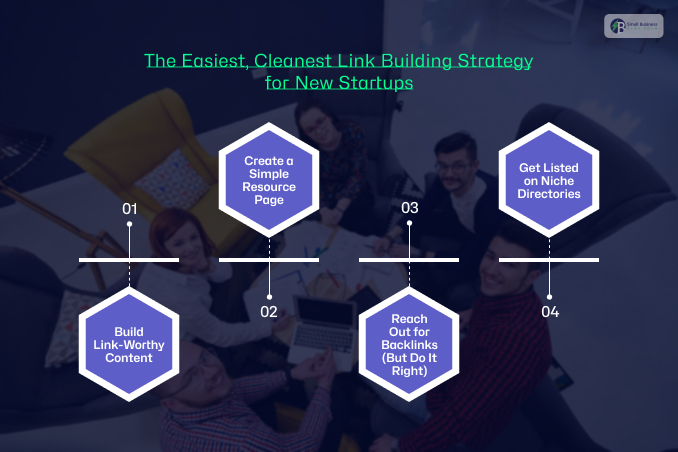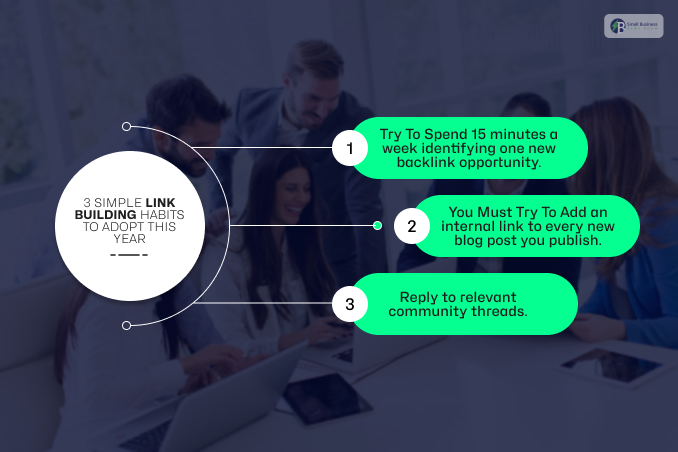Table Of Contents
The Link Building Strategy Every New Startup Should Use in Their First 12 Months
Last Updated on: August 5th, 2025
Starting a new business is exciting. The idea is ready, the website is live, and a few early customers are on board.
But then reality sets in — no one’s finding the website. The analytics show barely any traffic, and it feels like shouting into the void.
The issue isn’t that the product or service lacks value. The problem is visibility — the market doesn’t know the brand exists yet.
This is where link building enters the picture. If the term sounds technical or unfamiliar, that’s completely normal. This guide breaks it down in simple terms and outlines exactly what to do in the first year to grow domain authority and organic visibility using ethical and scalable tactics.
What Is Link Building for Startups — and Why It Matters
Think of link building like word-of-mouth for websites.
Imagine throwing a great party. If no one talks about it, no one else will come. But if friends tell their friends, word spreads — and soon the whole town knows. Online, backlinks act like those referrals. When reputable websites link to a startup’s site, search engines take notice.
Backlinks help search engines crawl and understand a site. The more trustworthy the referring sites are, the better the chances of higher rankings in search results.
However, not all links are beneficial. Low-quality or spammy links can do more harm than good. That’s why early-stage startups should focus on white hat link-building strategies — clean, ethical methods for earning high-quality backlinks.
Why Startups Should Start Link Building Early

Delaying SEO efforts is a common mistake. Here’s why link building should begin as early as possible:
● SEO takes time Google doesn’t rank new websites overnight. Starting early gives SEO efforts time to mature and produce results.
● Compounding value Backlinks acquired today continue to benefit a site long into the future, compounding in value.
● Low competition advantage Startups can capitalize on niche keywords and specific audience segments before larger competitors take notice.
● Investor and partner trust A strong search presence adds credibility, helping to win the confidence of potential investors and collaborators.
Think of link building as planting seeds. It takes patience, but consistent effort yields exponential growth over time.
A Clean, Scalable Link Building Strategy for Startups

Here’s a simple and ethical approach that any startup can use — no shady tactics or black-hat tricks required.
1. Build Link-Worthy Content
Link-worthy content gives others a reason to link back. Focus on creating resources that are genuinely useful, such as:
● How-to guides
● Industry research or original data
● Interviews with subject-matter experts
● Downloadable templates or tools
● Case studies and success stories
If content solves a real problem or provides new insights, it’s more likely to earn backlinks naturally.
2. Create a Resource Page
A resource page acts as a curated hub of valuable content — blog posts, tools, or even third-party resources. These pages often attract organic backlinks, especially if they’re well-organized and provide clear value.
3. Perform Outreach (The Right Way)
Outreach is essential — but it must be done correctly:
● Identify relevant blogs, communities, or industry websites
● Pinpoint where the content adds value
● Reach out with a short, personalized email that explains how the content can help their audience
Avoid generic pitches. Focus on relevance and quality.
4. Get Listed on Niche Directories
Not all directories are spammy. In fact, many respected directories provide SEO value and drive real traffic:
● Industry-specific platforms
● Startup directories like BetaList, Product Hunt, or AngelList
These links are easy wins, especially in the early months.
Common Link Building Mistakes to Avoid
Link building can be tempting to rush, but shortcuts usually backfire. Avoid:
● Buying links from untrustworthy sites This can lead to penalties from search engines.
● Publishing excessive low-quality guest posts Instead, prioritize high-value content on reputable sites.
● Spamming comments or forums with links This damages brand reputation and rarely helps SEO.
The focus should always be on long-term, ethical strategies that build real authority.
No Time for Link Building? Here’s What to Do
Running a startup is time-consuming. If bandwidth is limited, consider outsourcing to:
● A freelance SEO professional
● A content marketing intern
When outsourcing, consider working with a whitehat link building service that uses ethical methods and focuses on building sustainable, scalable strategies — not quick fixes that could harm rankings in the long term
3 Simple Link Building Habits to Adopt This Year

To make link building manageable, integrate these small but effective habits into the weekly routine:
1. Spend 15 minutes weekly identifying one new backlink opportunity Look for industry blogs, directories, or partnership possibilities.
2. Add an internal link to every new blog post This boosts SEO and keeps users engaged on the site longer.
3. Participate in relevant online communities Answer questions and add value. Share links only when they genuinely contribute to the discussion.
Doing these three things consistently creates a strong SEO foundation over time.
The Long-Term Payoff
Link building is not a quick fix. It’s a strategy with long-term rewards. While results may take months, the benefits compound over time:
● Increased organic traffic
● Higher search rankings
● More qualified leads
● Lower acquisition costs
● Greater brand trust and visibility
Unlike paid ads, which stop delivering results the moment the budget ends, backlinks continue to provide value for years.
Final Thoughts
Startups don’t need to become SEO experts overnight to benefit from link building. All it takes is a clear plan, a focus on quality content, and a commitment to ethical practices.
The key isn’t chasing links — it’s building value. Focus on creating content worth sharing, forming genuine connections, and working with trusted partners when needed.
Start small. Stay consistent. Think long-term. The results will follow.
Read More:















